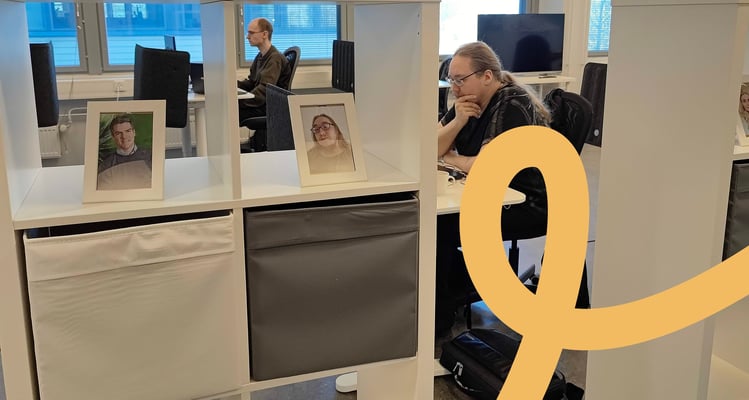Ework's Verama network is an open and organic ecosystem that changes according to the market's needs. You can find excellence and interesting stories within the network. Here is one of them. We had the opportunity to ask Jukka Mikkonen from Unicus Oy why their employees face many prejudices in their work, even though we ultimately end up in a situation where the customer asks, "where exactly was the problem?". All of the company's consultants are within the autism spectrum.
Can you tell us briefly about Unicus?
Unicus is a Norwegian-based company. We provide IT consultancy services in areas such as testing, software development, data engineering, and accessibility consultancy. All of the company's consultants are registered within the autism spectrum and were unemployed before they came to us. We are currently operating in 15 countries and have around 600 consultants. We have been operating in Finland since 2019, and there are now 20 of us.
What sets Unicus apart from other companies in the industry?
Two major things set us apart from "normal" companies. The first is that all our consultants are registered within the autism spectrum. The second is that winning is not the most important thing for us. Of course, we are a regular private company, but we do not seek profit to distribute to the owners. The owners' instructions are: 1. Hire as many people within the autism spectrum as possible. 2. Ensure that the employees are well. 3. Earn enough financial surplus to sustain ourselves.
Do you face prejudices? And which ones would you like to address here and now?
When talking about the autism spectrum, one must remember that everyone is individual, and not everyone is the same. Yes, we face prejudices. About 80% of individuals within the autism spectrum remain unemployed, primarily because they do not fare well in normal recruitment processes. New situations are exciting, and they are not the best at promoting themselves.
Some find employment on their own, but many talented individuals remain unemployed because companies often seek what is called "the good guy." People have many prejudices and images, for example, from the movie Rain Man. But most of all, when we talk about our employees, we find that after the person has been with the customer for a while, the question arises: "Where was the problem really?". This illustrates that after reaching a familiar and safe environment, among familiar people, these social challenges are no longer visible.
There are certainly many success stories. Would you like to share some of them?
Yes, fundamentally, our customer relationships are long-lasting and last for years. Our consultants are very loyal and do not want to switch tasks. Typically, we start with basic tasks, from which our employees then progress to more and more complex tasks.
As an example, we can tell you that one of our consultants started working with a customer three years ago. He started with no previous experience in testing basic systems. From there, he moved on to testing the customer's business-critical systems. Now he is conducting an analysis of the next instrument for the customer. So, the customer trusts his judgment on which system to use in the future. There are many similar stories. Many people have amazing talents as long as they are given the opportunity to showcase them.
Are you interested in knowing more about the topic?
Come and build new success stories with us and contact the Ework's team
Looking for jobs: Join Verama.



